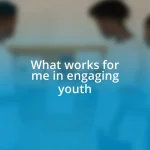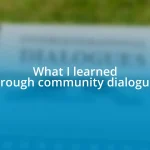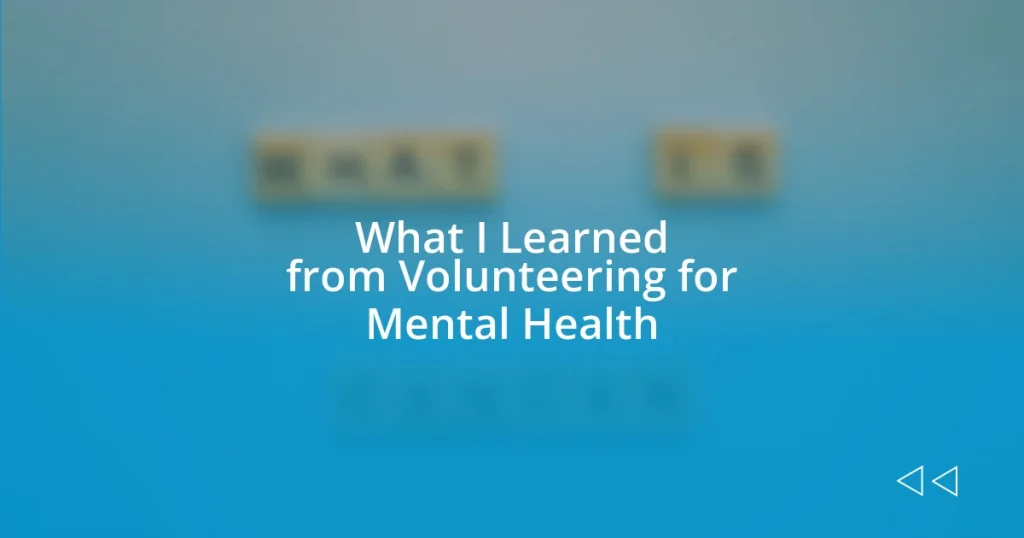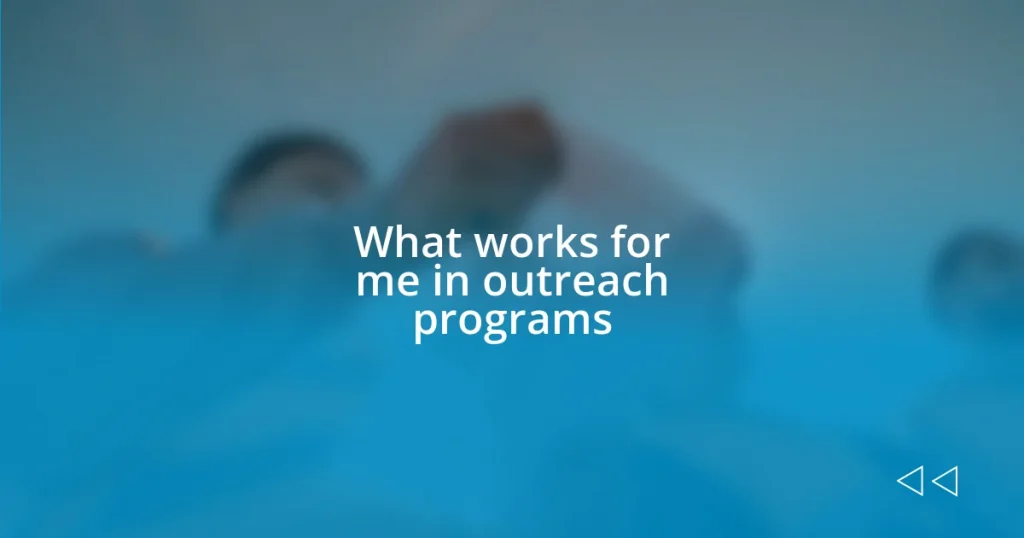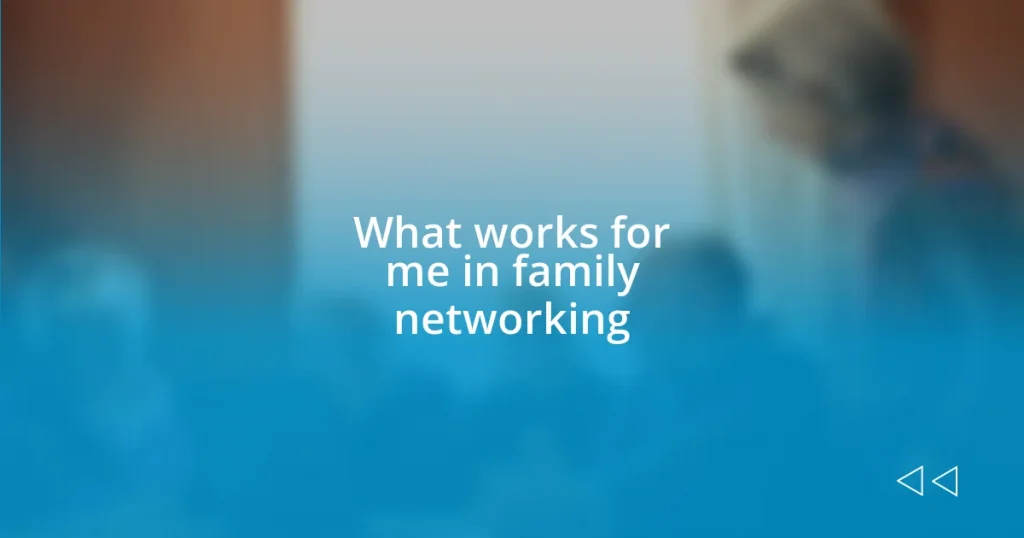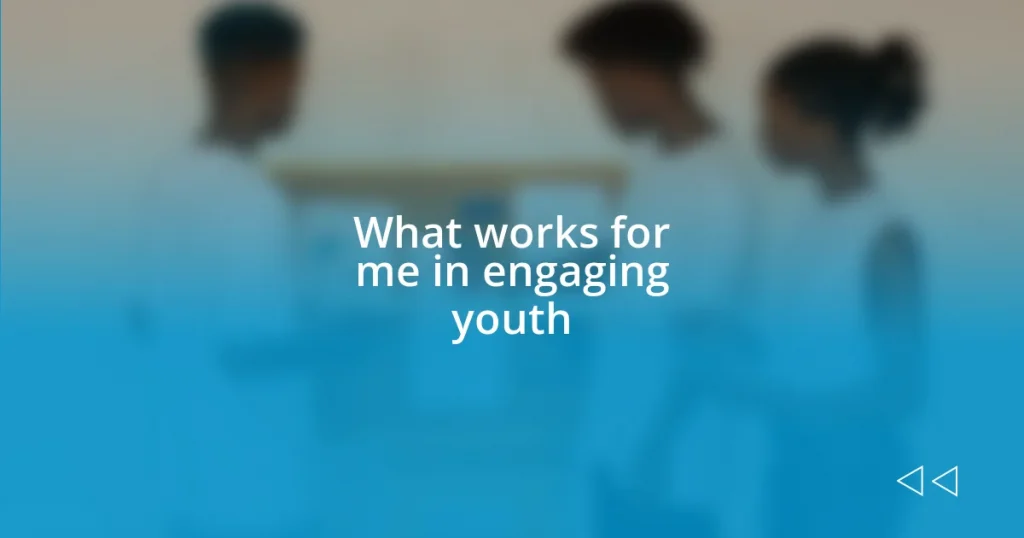Key takeaways:
- Acknowledging mental health is essential for individual and community well-being, as stigma can lead to isolation.
- Volunteering develops valuable skills such as active listening, empathy, and problem-solving, which enhance personal and interpersonal relationships.
- Building connections through service fosters a sense of belonging and community, while also presenting challenges that encourage personal growth and resilience.
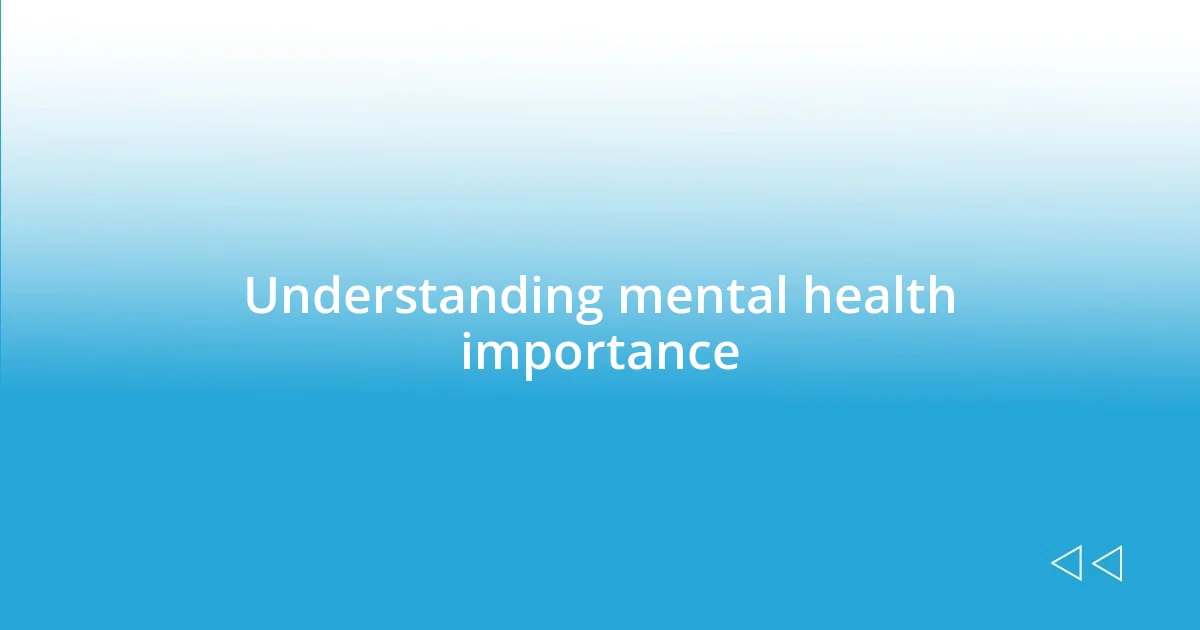
Understanding mental health importance
Understanding mental health is fundamental to our overall well-being. I remember a time when a close friend opened up about their struggles with anxiety; it was a wake-up call for me. It made me realize how often we overlook mental health, treating it as secondary to physical health. Why is it that we tend to prioritize a sprained ankle over an emotional breakdown?
Every day, I witness how mental health affects not just individuals but entire communities. During my volunteering, I met people whose lives were deeply affected by stigma, often feeling isolated because their struggles with depression or anxiety were dismissed. This experience taught me that acknowledging mental health is crucial—not just for treatment but for creating a culture of understanding and support.
Moreover, the importance of mental health is magnified in today’s fast-paced world. In my interactions, I noticed that many people carry invisible burdens that impact their productivity and relationships. It often makes me wonder: what if we created environments where mental health was openly discussed and prioritized? The transformation could be monumental, empowering individuals to seek help and support one another on a larger scale.
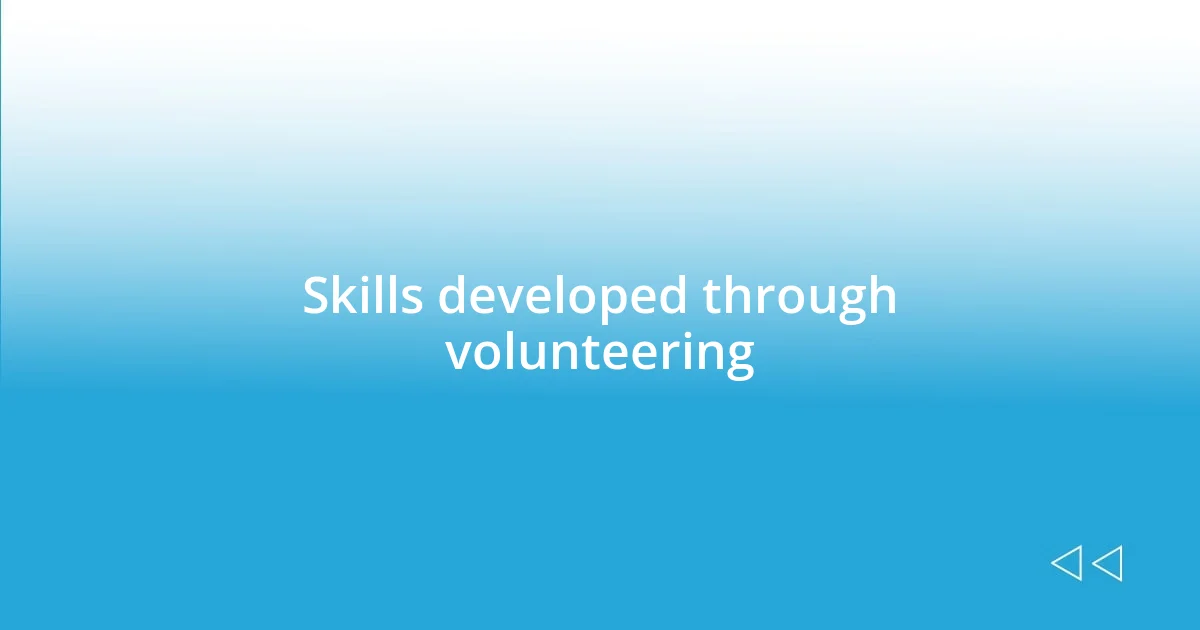
Skills developed through volunteering
Volunteering in mental health has undoubtedly helped me develop a range of invaluable skills. One of the most notable is active listening. I remember being in a group setting where members shared personal stories. It was essential to not just hear their words but to understand their emotions and nuances. This skill extends beyond volunteering; it has enriched my interactions in everyday life, fostering deeper connections with family and friends.
Another skill I acquired is empathy. When I volunteered, I often encountered individuals grappling with overwhelming emotions. There was one particular encounter with a young woman who felt invisible and unheard; hearing her story made me reflect on my own experiences with vulnerability. It taught me that empathy isn’t simply about understanding someone’s pain but connecting with their humanity at a deeper level. This has transformed how I approach conflicts and conversations; I find myself more inclined to seek to understand rather than judge.
Lastly, volunteering boosted my problem-solving skills. In a supportive role, I learned to think on my feet and adapt to unexpected challenges. For instance, there was a time when a planned workshop fell through last minute. I had to quickly engage the group in spontaneous discussions instead. It was a lesson in improvisation that not only benefited the immediate situation but also enhanced my confidence in handling unexpected changes in various life scenarios.
| Skill | Description |
|---|---|
| Active Listening | Enhances connections by understanding emotions and nuances in conversations. |
| Empathy | Facilitates deeper connections by recognizing shared human experiences and vulnerability. |
| Problem-Solving | Improves adaptability and confidence through real-time solutions during unexpected challenges. |
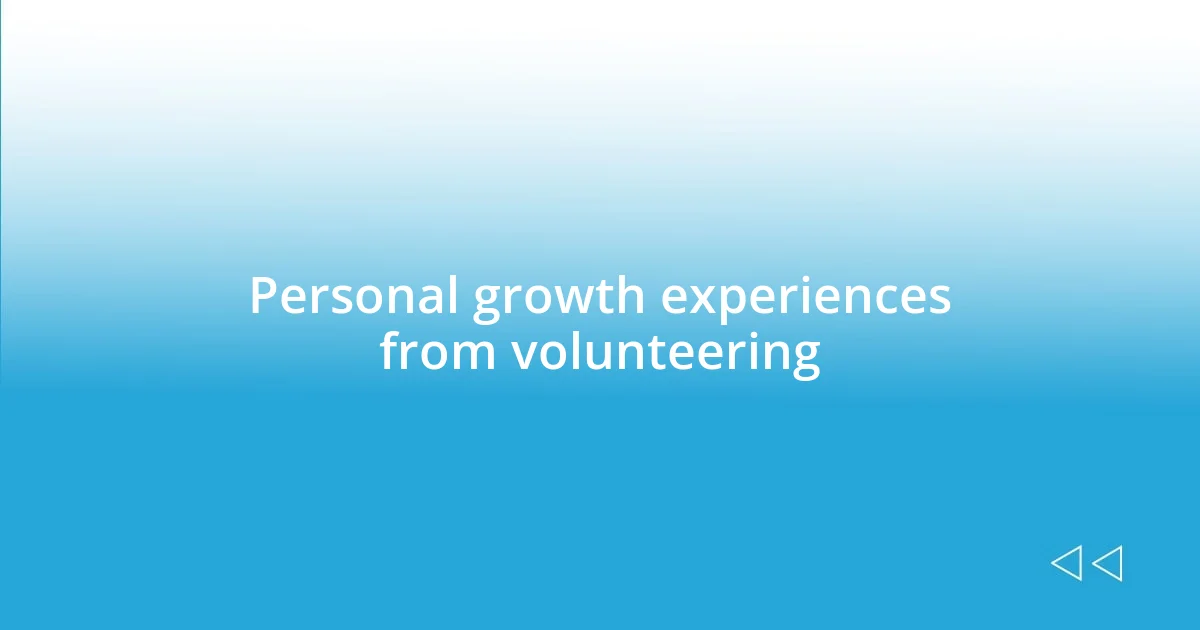
Personal growth experiences from volunteering
Volunteering has been a transformative journey for me, deeply contributing to my personal growth. I recall one particular evening while organizing a community event for mental health awareness. I encountered a participant who was visibly anxious about speaking in front of the group. I remember feeling this surge of empathy wash over me; I gently encouraged them to share their story. Watching their confidence grow and feeling their relief when they finally opened up was one of those moments that profoundly shifted my perspective. It reminded me that every interaction can be a powerful catalyst for change, not just for the individuals involved but for everyone witnessing it.
Here are some key personal growth experiences I’ve had while volunteering:
- Increased Resilience: Facing heart-wrenching stories taught me to navigate my emotional responses and become more resilient in the face of others’ struggles.
- Enhanced Self-Awareness: I discovered aspects of my personality that I never knew existed, such as my ability to handle emotional conversations without being overwhelmed.
- Stronger Communication Skills: Through countless discussions, I honed my ability to express thoughts clearly, tailoring my message to meet the emotional needs of others.
- Deeper Understanding of Diversity: Interacting with a richly diverse group expanded my world view, teaching me the importance of cultural sensitivity and inclusivity.
- Confidence Building: Stepping into roles I initially felt unprepared for gradually built my confidence, empowering me to embrace new challenges beyond volunteering.
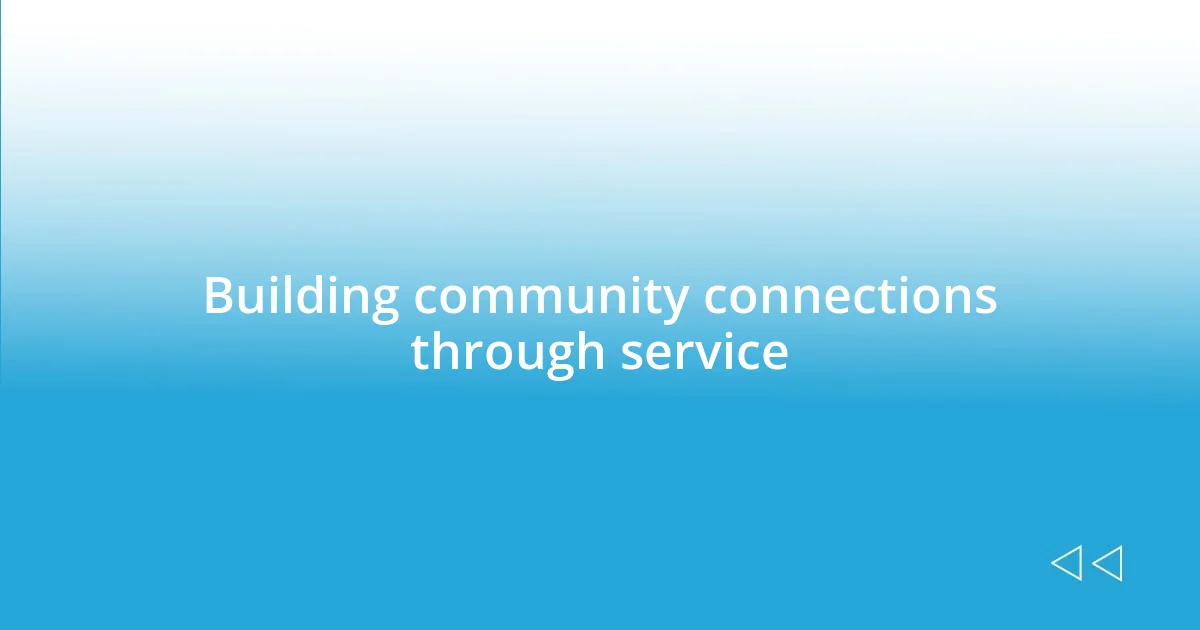
Building community connections through service
When I think about building community connections through service, a vivid memory comes to mind. I once participated in an outreach event where we set up a free mental health clinic in a local park. Seeing families come together, many of whom had never met, was heartwarming. It struck me how service can weave individuals into a fabric of support, creating connections that might never have formed otherwise.
As we established relationships during these events, I often found people bonding over shared experiences, even before we started discussing mental health. One time, two attendees—even complete strangers—ended up sharing a laugh over their similar experiences with anxiety. They left that day not just with useful resources, but with a budding friendship. It made me realize that sometimes all it takes is a space where vulnerability is welcomed to spark meaningful connections. Isn’t it incredible how a few shared moments can lead to friendships that support our mental health?
Participating in volunteer work enhanced my own sense of belonging as well. There was a moment during a mental health awareness campaign when I was paired with a fellow volunteer who initially seemed distant. Through our collaborative efforts, we found common ground in our passion for helping others. By the end of the campaign, we were exchanging personal stories and building a camaraderie that I cherish to this day. This experience underscored how service isn’t just about giving; it’s about receiving the gift of connection that nourishes the soul.
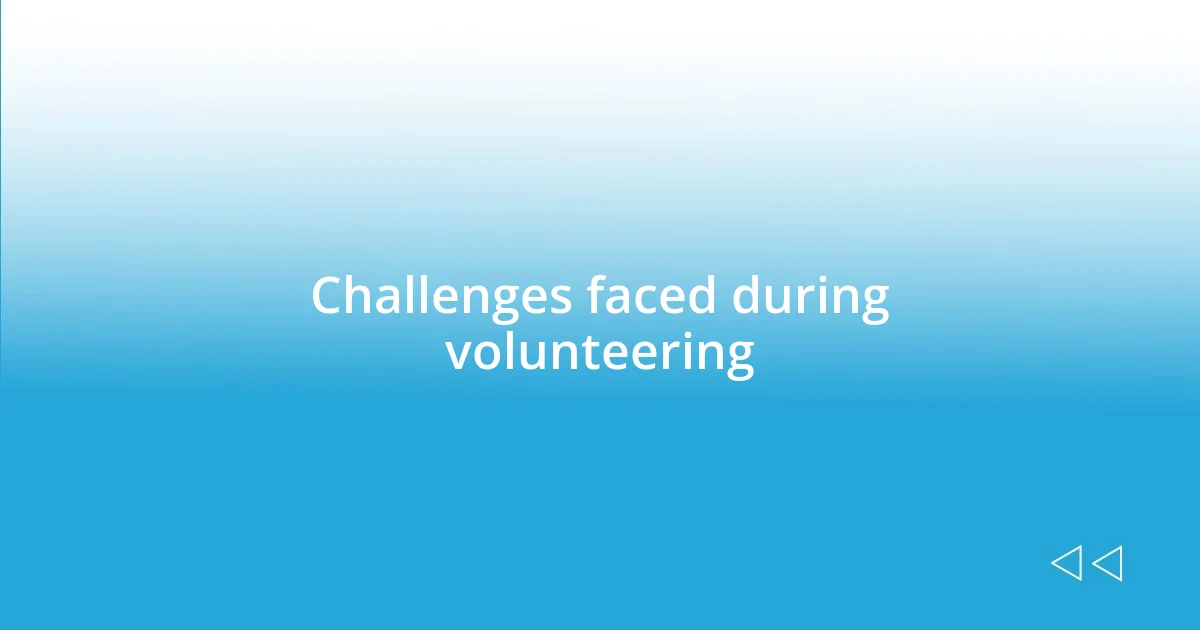
Challenges faced during volunteering
Volunteering in mental health services is incredibly rewarding, but it doesn’t come without its challenges. I vividly remember one particularly overwhelming day; I had been listening to stories of trauma and loss for hours on end. At one point, I felt emotionally drained and wondered about the toll this was taking on my own mental health. It’s tough to balance the compassionate energy you want to give while grappling with the heaviness of what you hear.
Another challenge I faced was the varying levels of engagement from the individuals I worked with. Some were eager to share their experiences, while others would remain silent, lost in their own thoughts. I often found myself reflecting on how to bridge that gap. How do you encourage someone to open up without pushing them too hard? It’s a delicate dance, and it taught me the importance of being patient and honoring each person’s unique journey.
I also encountered logistical hurdles, such as coordinating schedules and managing resources. During one event, a critical speaker canceled last minute, leaving us scrambling. In that moment, vulnerability surfaced again. I had to step up and facilitate a discussion instead, a role that initially terrified me. I realized that these unpredictabilities, while challenging, also offered opportunities for growth. Over time, I learned to embrace uncertainty as part of the volunteering experience, and that shift in mindset made all the difference.



